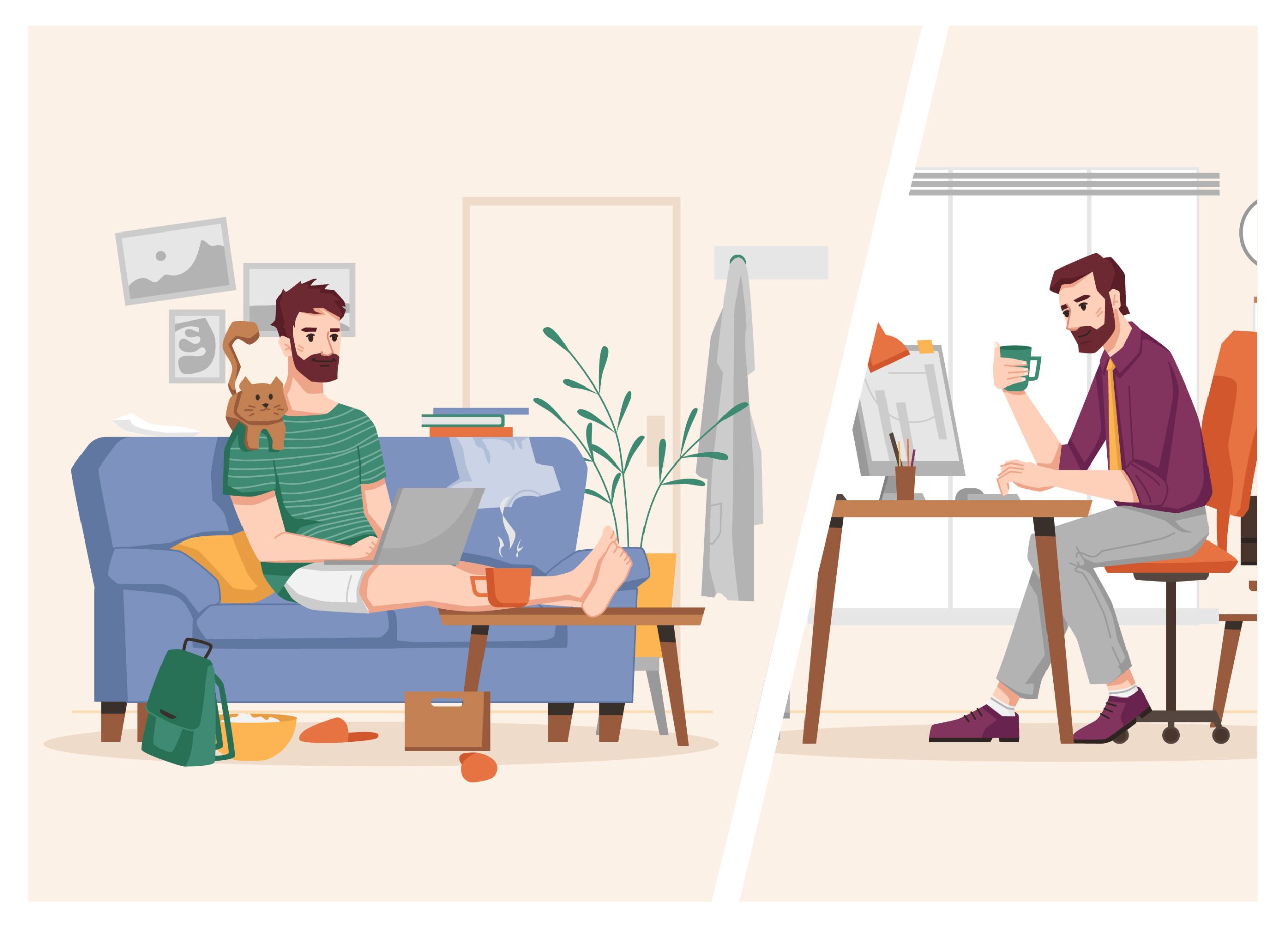
The work environment has changed drastically in the last two years. Even though Covid-19 is still active, the world is adjusting, and the topic is appearing less in the news. However, the damage it has done over the last two years is clearly visible. The economic crisis since 2020 has ravaged the market and more than 114 million people lost their job globally.
Many businesses closed in the last two years. Some tried to stay afloat and introduced permanent work from home standards. After a span of two years, as the world is trying once again to return to a semblance of normalcy, people are refusing to return to work.
Why the sudden shift in office culture?
The post pandemic effect on the job market has sparked several debates. It’s important to talk about how this market will recover. Small businesses suffered the most due to the worldwide lockdown. Were there really no jobs or was the market navigating for new ways to make space for the virtual work setting as well as managing the pandemic outrage? The transition from work-to-office to work-from-home was quick but what the market discovered was the importance of flexibility.
Office had a different meaning a few years back. People adhered to a routine of 9-to-5 and returned home. They went out with their colleagues for lunch. They mingled in the office while having a cup of coffee. As that culture shifted to Zoom calls and Teams meetings, people socialized less. They got used to the comfort of their home. No longer was the office restricted to 9-to-5.
Even though people struggled with finding work-life balance at first, they now prefer this flexibility more than a restricted schedule. Small organizations are bearing the worst of it. They are falling behind as qualified candidates are demanding higher salary figures than usual to return to the office.

Perhaps “job market” has a new definition now. It’s not just sitting at the office anymore and coming back home at a stipulated time. It’s about working while you’re cooking, taking calls at midnight, attending events over Zoom calls, etc. Some business modules even started a work-from-anywhere model as the productivity rate went higher than what was seen in working from the office.
Are you ready to go to the office?
The US is now facing a different kind of problem. Even though there are tons of jobs available in the market, people aren’t willing to come back to the office. This has led to another debate of giving up office culture entirely and shifting to permanent remote work. If they don’t get people to fill in the space, will the world see another kind of unemployment wave? Should we give up office spaces?
If you’re a qualified candidate, your prime focus should be on getting the work done. No matter where you work, your productivity shouldn’t be hampered. As offices are trying to implement new rules to get the people back, a hybrid mode of work is getting a lot of attention. This culture gives a candidate the chance to meet colleagues, keep the office environment alive, socialize with people as well as enjoy the solace at home.
“Among those who have a workplace outside their home, 61% now say they are choosing not to go into their workplace, while 38% say they’re working from home because their workplace is closed or unavailable to them,” according to a new report from Pew Research Center.
The new normal and work from office
People adapted to this new norm. Organizations shouldn’t necessarily hold a grudge against a candidate for not wanting to return to work. If a candidate is not getting the desired work environment, they are even resorting to quitting their jobs and starting their own business. People are even taking up several small projects to support themselves financially instead of going back to the office full-time. Freelancing platforms saw a huge boost as many candidates preferred freelancing over sticking to a routine schedule.

Research has revealed that work-from-home or the choice to have flexibility is becoming a deciding factor now in terms of job acceptance. We’re yet to understand the full impact of this pandemic. If anything, we’ve learned to adapt to new possibilities. The world is an ever-changing place.
Organizations have a lot to focus on when it comes to employee branding and satisfaction. Returning to the office sure sounds like a lucrative possibility to many while others might feel the exact opposite. It’s a good idea to introduce new norms from time to time to keep the employees satisfied.
Companies should offer their employees a choice and let them decide how they want to go ahead with this transition.
For any queries regarding any open position, reach out to us.





